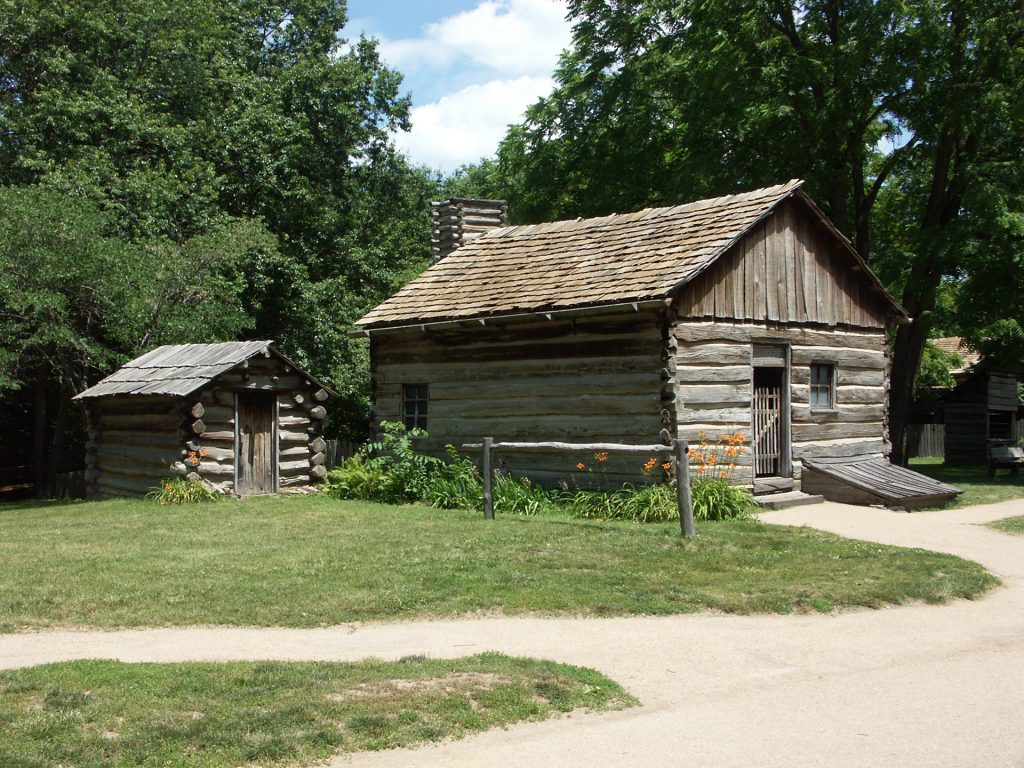 Imagine your property surrounded by land and water on all sides. Imagine that this land and water do not belong to you. To get to your own property, you use a wood trail, and you have used this trail regularly for four decades. But one day the surrounding land is sold, and the new owners want more privacy. They set up fences and “No Trespassing” signs to keep you off their property. Now your only access to your property is a public canal. Can the courts protect you? The Louisiana Third Circuit Court of Appeal (“Appellate Court”) intends to do so.
Imagine your property surrounded by land and water on all sides. Imagine that this land and water do not belong to you. To get to your own property, you use a wood trail, and you have used this trail regularly for four decades. But one day the surrounding land is sold, and the new owners want more privacy. They set up fences and “No Trespassing” signs to keep you off their property. Now your only access to your property is a public canal. Can the courts protect you? The Louisiana Third Circuit Court of Appeal (“Appellate Court”) intends to do so.
Nestled in St. Martin Parish near Herman Dupuis Road and buttressed by a public borrow canal is a piece of land known as the Ovide Daigle, Sr. Estate (“the DE Property”). This property has been co-owned by Harvey Altemus for over 55 years. Since that time, the land surrounding the DE Property has changed hands, and at the time of litigation, the surrounding land was owned by Helene Jeanne Boudreaux, Faye Guidry Hebert, Shelby Guilbeau, Michael Kidder (D/B/A Kidder Corporation), Michael and Phyllis Marks, and the State of Louisiana. Each of these individuals owned a separate piece of property surrounding Mr. A’ property. Except for Michael and Phyllis Marks (“the Markses”), the property belonging to the owners was previously owned by ALC Corp. The DE Property is almost completely landlocked by properties not belonging to its owner. In fact, the only pieces of the DE Property not surrounded by other people’s property is the area buttressed by the public borrow canal. Mr. A cannot access HD Road, the nearest roadway, without crossing another owner’s land or using the canal.
In 1974, the Markses allowed Mr. A to begin parking on their property, and ALC Corp allowed Mr. A to get into his land by way of a 30 foot wide path that went over its land. This informal arrangement continued for 24 years until Mr. A learned in 1998 that ALC Corp planned to sell or donate its property surrounding the DE Property. On May 1, 2000, Mr. A and ALC Corp executed an “Access Permit” to give Mr. A official use of the path. ALC Corp then transferred all of its land abutting the DE Property to the State of Louisiana and sold several parcels of land bordering Herman Dupuis Road. The sale to Helene Jeanne Boudreaux (“Mr. B”) included reference to the Access Permit trail, even though this trail was not officially recorded at the time of execution. The rest of the property sold to Kidder Corporation, Shelby Guilbeau, and Faye Hebert were all made required to be subject to all previous servitudes and the like on the property. Mr. A continued using the trail until he met with Mr. B on this wood trail in 2010. After this meeting, Mr. B requested the State remove the Access Permit. The State agreed and sent a by sending Mr. A a letter to this effect. At this point, in 2011, Mr. A recorded the Access Permit, and Mr. B put up a fence blocking Mr. A’s access to his own property. Hebert and Guilbeau then put up signs on the property telling others entry was not allowed, blocking Mr. A’s opening to the trail. On September 4, 2013, Mr. A filed a Petition for Declaratory Judgment and for Damages against the State of Louisiana, Mr. B, Hebert, Guilbeau, and Kidder Corporation (the Markses were later joined in an amended petition) seeking a court recognition of the 30-foot trail as an apparent servitude giving Mr. A a right to cross the properties. Both the State and the Markses entered into Consent Judgments with Mr. A. The remaining property owners sought to strike these Consent Judgments. At trial, the court granted Mr. A his right-of-way and declined to award damages. Mr. B, Hebert, Guilbeau, and Kidder (collectively “Appellants”) appealed the decision of the Trial Court.
 It is one thing to own land, but it is another thing to know what rights come with that ownership. Without the help of a good lawyer, a misunderstanding of property rights could put you in court for trespassing–or worse. For instance, it might be important to understand if installing a pipeline on land protected by conservation restrictions is allowed. This issue was addressed in 2016 when some land in Iberville Parish because of the subject of a dispute between two companies.
It is one thing to own land, but it is another thing to know what rights come with that ownership. Without the help of a good lawyer, a misunderstanding of property rights could put you in court for trespassing–or worse. For instance, it might be important to understand if installing a pipeline on land protected by conservation restrictions is allowed. This issue was addressed in 2016 when some land in Iberville Parish because of the subject of a dispute between two companies.  Louisiana Personal Injury Lawyer Blog
Louisiana Personal Injury Lawyer Blog


 In contracts for the sale of land and property, parties typically execute a Purchase Agreement before the Contract of Sale. The purchase agreement may be incorporated with the contract of sale, or it may be a preliminary document that is not included in the final contract. It is important that a good attorney draft both of these documents, because issues may arise when the documents conflict or are not clear in intent.
In contracts for the sale of land and property, parties typically execute a Purchase Agreement before the Contract of Sale. The purchase agreement may be incorporated with the contract of sale, or it may be a preliminary document that is not included in the final contract. It is important that a good attorney draft both of these documents, because issues may arise when the documents conflict or are not clear in intent. The taking of property by the government under the power of eminent domain is an issue that can be contentious for many landowners. When this does happen landowners are entitled to just compensation. For one Louisiana man with property near the Superdome and across the street from St. Joseph’s Church, the power of eminent domain became very personal.
The taking of property by the government under the power of eminent domain is an issue that can be contentious for many landowners. When this does happen landowners are entitled to just compensation. For one Louisiana man with property near the Superdome and across the street from St. Joseph’s Church, the power of eminent domain became very personal. If you ever inherit land from a relative, it may be wise to investigate if anyone else has a claim to it. There may be a co-owner in the shadows waiting to sell it.
If you ever inherit land from a relative, it may be wise to investigate if anyone else has a claim to it. There may be a co-owner in the shadows waiting to sell it.  Could your contract to build a new home prevent you from bringing a negligence claim if there is negligent conduct? While stressful, at the end of the day, buying and building a new home should be a positive thing that improves quality of life. When Glenn and Sandra Wilson designed and bought a new home, they felt otherwise. They believed their home had both design and construction deficiencies. Thus, they filed a lawsuit in East Baton Rouge Parish against several defendants involved in the design and construction of their home. Acadiana Home Design and Murry Daniels were alleged to have both provided design plans for the Wilsons’ home as well as failed to supervise construction.
Could your contract to build a new home prevent you from bringing a negligence claim if there is negligent conduct? While stressful, at the end of the day, buying and building a new home should be a positive thing that improves quality of life. When Glenn and Sandra Wilson designed and bought a new home, they felt otherwise. They believed their home had both design and construction deficiencies. Thus, they filed a lawsuit in East Baton Rouge Parish against several defendants involved in the design and construction of their home. Acadiana Home Design and Murry Daniels were alleged to have both provided design plans for the Wilsons’ home as well as failed to supervise construction.  Buying property in “as is” condition can pose a substantial risk to the purchaser of the property. An “as is” sale means that once the sale is closed, the buyer has extremely limited recourse against the seller for any problems that might be later discovered with the property. Remorseful buyers may attempt to rescind a sale by claiming that the sellers failed to disclose defects with the property prior to the sale. But this strategy by no means ensures a favorable outcome for the buyer, as a case involving a house purchase in the City of Rosepine demonstrates.
Buying property in “as is” condition can pose a substantial risk to the purchaser of the property. An “as is” sale means that once the sale is closed, the buyer has extremely limited recourse against the seller for any problems that might be later discovered with the property. Remorseful buyers may attempt to rescind a sale by claiming that the sellers failed to disclose defects with the property prior to the sale. But this strategy by no means ensures a favorable outcome for the buyer, as a case involving a house purchase in the City of Rosepine demonstrates. Land within subdivisions is often subject to various restrictions. It is important to know and follow these restrictions to avoid potential legal action. The following case in Desoto parish discusses some of the legal implications of neighborhood subdivision restrictions in Louisiana.
Land within subdivisions is often subject to various restrictions. It is important to know and follow these restrictions to avoid potential legal action. The following case in Desoto parish discusses some of the legal implications of neighborhood subdivision restrictions in Louisiana. There are times when a Trial Court may issue partial judgments that are non-appealable. But this does not always mean the lawsuit is over. When this happens it is important to have an excellent attorney to navigate the complex procedural processes to allow a party to reach the stage where an Appellate Court may review the factual issues of their case. That was the case for a Lafayette area man who ran into problems with a home he recently purchased.
There are times when a Trial Court may issue partial judgments that are non-appealable. But this does not always mean the lawsuit is over. When this happens it is important to have an excellent attorney to navigate the complex procedural processes to allow a party to reach the stage where an Appellate Court may review the factual issues of their case. That was the case for a Lafayette area man who ran into problems with a home he recently purchased. This is a continuation of a previous post on the “DE Property,” an enclosed estate in St. Martin Parish.
This is a continuation of a previous post on the “DE Property,” an enclosed estate in St. Martin Parish. Imagine your property surrounded by land and water on all sides. Imagine that this land and water do not belong to you. To get to your own property, you use a wood trail, and you have used this trail regularly for four decades. But one day the surrounding land is sold, and the new owners want more privacy. They set up fences and “No Trespassing” signs to keep you off their property. Now your only access to your property is a public canal. Can the courts protect you? The
Imagine your property surrounded by land and water on all sides. Imagine that this land and water do not belong to you. To get to your own property, you use a wood trail, and you have used this trail regularly for four decades. But one day the surrounding land is sold, and the new owners want more privacy. They set up fences and “No Trespassing” signs to keep you off their property. Now your only access to your property is a public canal. Can the courts protect you? The